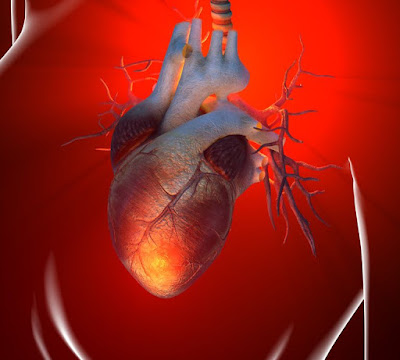December Heart Attacks Are the Most Deadly
And It's Important for You to Know Why
Several medical studies now show pretty convincingly that Americans who have heart attacks around the holidays -- specifically, the time between Thanksgiving and New Year's Day -- are more likely to die than people who have heart attacks at other times of the year.
The increase in cardiac mortality during the holidays is not huge - about 5% - but it is statistically
significant, and it has been confirmed now in several large population studies.
Several investigators have tried to figure out why this is the case, and theories abound. They include:
1)The onset of cold weather as winter begins.
2)Reduced hospital staffing during the holidays.
3)Increased depression and emotional stress.
4)Overindulgence of fatty foods and alcohol.
5)Delay in seeking medical attention.
What's the REAL Reason?
Nobody can prove today exactly why heart attack mortality increases during the holidays. But I have taken the liberty of ordering the above list of theoretical potential causes in ascending order of importance, from least likely to most likely.
The first two explanations - the onset of cold weather, and reduced hospital staffing - are unlikely to play a major role. Higher heart attack death rates during the holidays are just as prevalent in the southern, warmer states as they are in northern states. And investigators who have formally assessed the question have not been able to find any drop-off in the speed or the quality of care when a patient is admitted with a heart attack in December, as compared to any other time of year.
Depression, which is prominent during the holidays - especially among older people for whom the holidays can invoke a sense of loss for happier times, or for loved ones who are no longer present - is a known risk factor for heart attacks, and likely explains at least some of the increased risk. The added stress of the holiday season may also contribute to some degree.
Read about stress as a risk factor for heart disease.
Certain types of dietary indiscretions may help to trigger heart attacks. Some evidence indicates that eating a meal extremely high in saturated fats might help to trigger plaque rupture in diseased coronary arteries. Overindulging in salt might create excess cardiac stress in people with hypertension or heart failure. And loading up on alcohol can trigger "holiday heart" - that is, the onset of atrial fibrillation, which, in turn, could trigger a heart attack in someone with critical coronary artery disease.
But common sense suggests that simple denial plays a very large role in explaining why heart attacks are deadlier around the holidays. People who develop chest pain or other symptoms during the holidays are likely to try just wishing the symptoms away, or attributing them to some other cause (overeating, stress, etc.,) since, how can it be a heart attack? It's Christmas!
Such willful ignoring of potentially dangerous cardiac symptoms tends to go on until those symptoms simply can be no longer ignored.
By that time, the heart attack victim arrives in the hospital much later than he/she would have at other times of the year. This delay can be deadly. When you are having a heart attack, time is of the essence. A delay of a few minutes can make the difference between surviving with a healthy heart, surviving with a very damaged heart - or dying.
Any physician who has taken care of patients with heart attacks over the holidays will tell you that at that time of year people tend to try "riding it out," so as not to ruin the season for their family and friends. By the time they seek help, they are a lot sicker than they would have been had they ignored the holiday season, and sought medical help right away. And as it happens, having to attend a funeral during the holidays also tends to be quite disruptive to family and friends.
Just because it's the holidays doesn't mean you can't be having a heart attack. If you have the symptoms, get immediate medical care.
Learn how to survive a heart attack.
 RSS Feed
RSS Feed Twitter
Twitter

























 12:09 AM
12:09 AM
 Unknown
Unknown

 Posted in
Posted in 